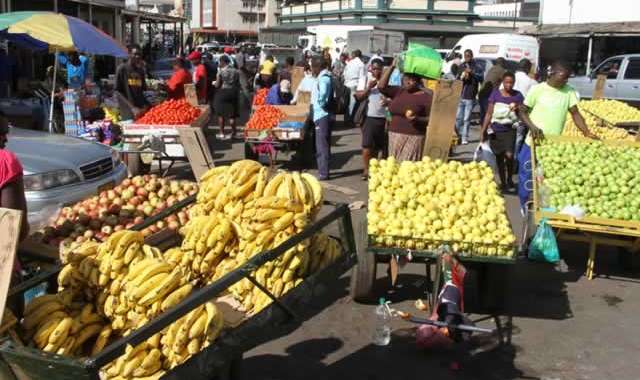EDITORIAL COMMENT : Vendors are not a menace

The affluent and those in authority tend to view vendors as a menace with no redeeming features who need to be flushed out so that streets and pavements are “safe’’ and clear of obstructions.
President Mnangagwa’s move of Thursday to reach out to vendors was a useful jolt to those who still need to think of vendors, and their customers, as real people with practical needs. The President had action on his side as well.
Early in his administration, his Government reversed a policy initiated by the Mugabe government and enthusiastically endorsed by the opposition-led Harare City Council, in a weird alliance, to drive vendors from the streets.
Councils were told to hold their horses and start looking for permanent and compassionate solutions instead.
For a start, we must appreciate that no one elects to be a vendor.
It is out of necessity, not desire.
Secondly, we need to recognise that vendors are earning an honest living, and as the President noted, feeding, clothing, housing and educating their children from their modest earnings.
They neither steal, nor rob to put food on the table.
If anything, vendors ensure the areas of the city they operate from are crime-free. They work very hard, and for long hours, to make this survival income; they are not lazy incompetents preying on the people. And as they make a living obviously their customers find them useful.
Of course, they breach a raft of municipal by-laws, but then so does the CEO of a major company who double parks his Mercedes-Benz or leaves it in a parking bay beyond the time he has paid for; he does not regard himself as a criminal nor does anyone else, just as a nuisance.
There has never been a total ban on vending.
The Herald has been sold on the side of the road for more than 125 years, for example, although admittedly our vendors have been licensed over the decades by the local authorities. The point obviously is that the impact is low.
And we are never going to eliminate vending. Even today, in rich European and North American cities, you find people earning an honest living selling stuff on the streets, but not in large numbers. The reason is obvious: Most people have jobs or businesses that pay more than vending does.
And that is the long-term solution in Harare and other Zimbabwean towns and cities. Anyone offering vendors even minimum wage jobs in commerce and industry is likely to find plenty of takers. Vending is hard work and with intense competition profit margins are very low. Even a menial factory job will pay better for most. So the economic growth that has now restarted has to continue and be accelerated.
Then we are seeing more sensible town planning rules that allow flea markets and SME complexes that can absorb the upper few percent of vendors ready to move into more formal businesses.
But we can also be looking at imaginative solutions. People talk about markets, but there is little room in most areas for these, but what is there must be used. Councils need to negotiate with vendors. Half the nuisance problems, for example, could be eliminated by simply specifying narrow boxes, blankets or tables to display the wares; this is not a wonderful clear-the-streets solution, but it would help.
Markets need to be on routes pedestrians use to get to car parks and bus stops, since vendors need customers.
A far more effective solution would be to create the extra land and solve some other more serious problems simultaneously in the public transport sector. Unlike the eastern part of the CBD with its giant Simon Muzenda Street bus terminus, there is nothing similar for the far more numerous routes that take commuters home to the southern, south-western and western satellite towns and suburbs. An ill-conceived attempt to move the terminus some kilometres from the CBD was deservedly shot down.
But there is a superb opportunity for the next city council to negotiate with the National Railways of Zimbabwe, which is now starting to revive, but which has a lot of run-down property between the central railways station and Julius Nyerere Way/ Seke Road. A land swap, leaving the main tracks and railway station, but having the railways give up the rest in return for a far larger greenfield site further out, would release enough land for a central bus station next to the railway station in a perfect CBD site, even more convenient for passengers than the street corners now used, but still clearing parked buses from the streets. And allocating part of that land for proper market stalls, like several hundred of them, would give many vendors what they need, a sheltered spot, but with thousands of people walking past every hour.
None of this is overnight, so we will have people on the pavements for some time yet. But an agenda is required that sees fewer people needing to become vendors, and offers those who remain at better sites and facilities with even better access to customers.









Comments